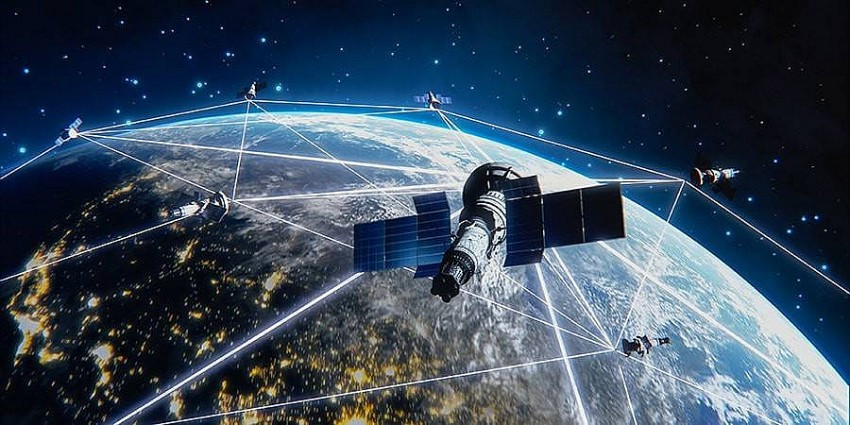
The government is establishing pilot policies to regulate and facilitate this investment, ensuring national security and technological advancement.
Vietnam sets up controlled pilot program for LEO satellites
In a proposal submitted to the National Assembly, Deputy Prime Minister Nguyen Hoa Binh outlined a controlled pilot program for telecommunications services using low-earth orbit satellites.
The proposal aligns with Resolution No. 57/NQ-TW, which calls for the development of telecommunications infrastructure, including satellite data transmission, high-speed broadband networks, 5G/6G, and beyond.
Since LEO satellite technology is mainly developed by foreign enterprises, Vietnam aims to create policies that allow international investment while safeguarding national security.
On February 19, the National Assembly approved a resolution supporting breakthrough policies in science, technology, innovation, and digital transformation. One of the key measures is the controlled trial of telecommunications services using LEO satellites.
Under this framework, foreign investors will not face restrictions on ownership percentages or capital contributions when investing in LEO satellite services in Vietnam, provided they comply with national security requirements.
Foreign investors and Vietnam’s satellite ambitions
On February 24, a spokesperson for the Department of Telecommunications confirmed that the Ministry of Information and Communications (MIC) is developing policies to promote LEO satellite deployment.
Foreign companies must submit applications for service licenses in accordance with Vietnamese regulations.
Globally, around 20 major corporations are developing LEO satellite constellations to provide global Internet coverage.
Notable LEO satellite operators include: SpaceX's Starlink with over 6,700 deployed satellites and plans to expand to 42,000; OneWeb, which has launched more than 500 satellites.
Other players such as Amazon’s Kuiper, Telesat, SES, Viasat, LeoSat, Globalstar, Inmarsat, Thuraya, and Intelsat.
China is also entering the competition, having launched 18 LEO satellites as part of Shanghai Spacecom Satellite Technology's plan to deploy 15,000 satellites.
Vietnam’s preparation for LEO satellite services
Vietnamese companies such as Viettel and VNPT are beginning preparations for LEO satellite technology, particularly in telecommunications and Internet services.
In 2023, SpaceX representatives met with Deputy Minister of Information and Communications Phan Tam to express interest in bringing Starlink services to Vietnam.
A SpaceX representative emphasized: “Our LEO satellite network can provide high-speed Internet to remote areas, where traditional fiber-optic infrastructure is unavailable. Starlink can support services like telemedicine, education, and emergency response in Vietnam’s rural and maritime regions.”
SpaceX also urged the Vietnamese government to accelerate digital infrastructure strategies, pledging to support connectivity improvements nationwide.
Recently, Laurent Tran Dien, SpaceX’s Asia-Pacific representative, highlighted the importance of satellite Internet in disaster-prone regions.
“The Asia-Pacific region faces natural disasters like earthquakes and tsunamis. In emergencies, reliable Internet connectivity is crucial for communication and disaster response.”
He also emphasized that Starlink’s rapid deployment capabilities allow installation on aircraft, fishing boats, and automobiles, making it a versatile Internet solution for remote areas.
Vietnam’s interest in LEO satellite technology reflects a broader vision for digital transformation. By partnering with global leaders, the country aims to leverage advanced satellite technology while ensuring national security and regulatory compliance.
Thai Khang